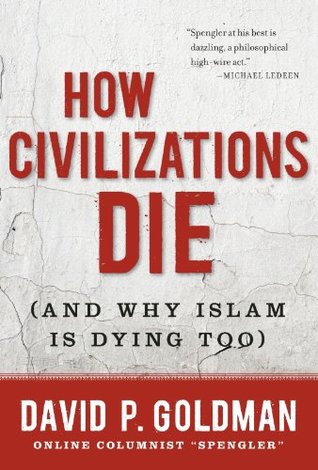The Judeo-Christian notion of divine love is what makes possible the rational ordering of human existence: as an act of love towards humankind, God made nature sufficiently intelligible for us to cope with it. For Jews and Christians, the rationality of everyday life proceeds from the biblical concept of covenant. Islam eschews reason. Muslim life is arbitrary because it rejects the concept of divine love as expressed in the covenant between God and man. It might be argued that al-Ghazali in some way corrupted the true faith of Islam, which in earlier centuries included some rationalists. But
The Judeo-Christian notion of divine love is what makes possible the rational ordering of human existence: as an act of love towards humankind, God made nature sufficiently intelligible for us to cope with it. For Jews and Christians, the rationality of everyday life proceeds from the biblical concept of covenant. Islam eschews reason. Muslim life is arbitrary because it rejects the concept of divine love as expressed in the covenant between God and man. It might be argued that al-Ghazali in some way corrupted the true faith of Islam, which in earlier centuries included some rationalists. But the Koran itself is consonant with al-Ghazali’s position. The phrase “Allah loves” occurs in the Koran only sixteen times; the remote and absolutely transcendent God of Islam loves “those who do good,” “those who purify themselves,” “those who trust,” “those who act equitably,” “the doers of justice,” and above all “those who fight in His way in ranks as if they were a firm and compact wall.” Allah, in short, loves those who do him service. The Judeo-Christian notion that God has a special love for the weak and defenseless—let alone that God loves the sinner—is entirely absent in Islam. As Franz Rosenzweig wrote, “Unlike the God of faith, Allah cannot go before his own [people] and say to their face that he has chosen them above all others in all their sinfulness, and in order to make them accountable for their sins. That the failings of human beings arouse divine love more powerfully...
...more
This highlight has been truncated due to consecutive passage length restrictions.
than their merits is an impossible, indeed an absurd thought to Islam—but it is the thought that stands at the heart of [Jewish and Christian] faith.”9 For Jews and Christians, it is God’s love that exalts the individual, who is created in God’s image and thus is a fitting lover for the Maker of Heaven. Islam, by contrast, propounds a collective identity, for Allah loves “those who fight in His way in ranks as if they were a firm and compact wall.”


